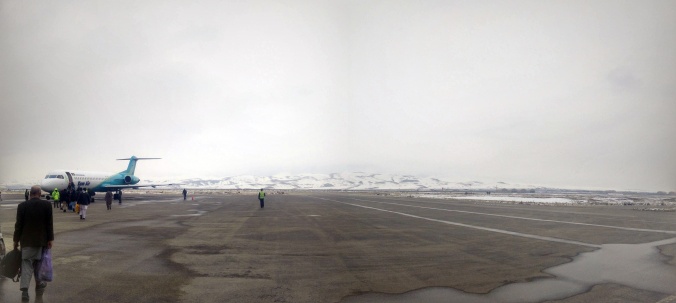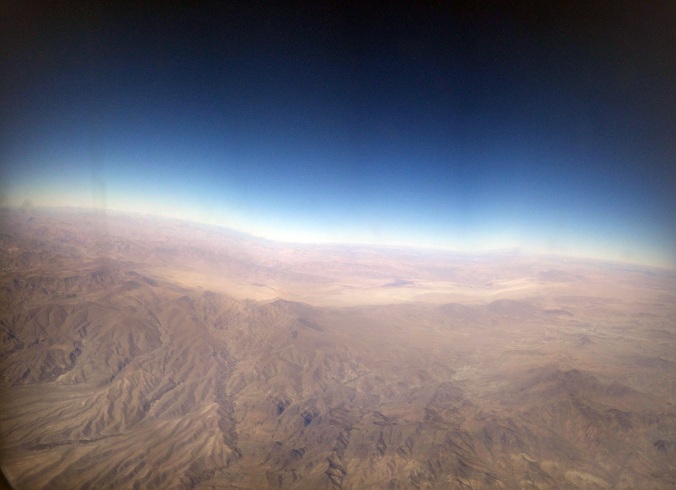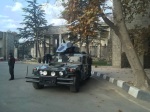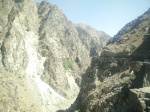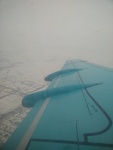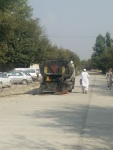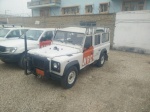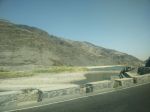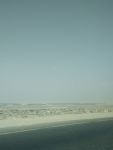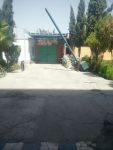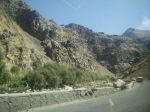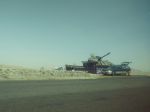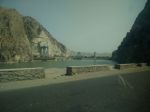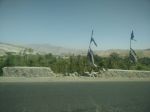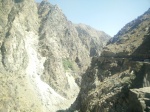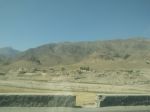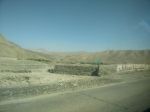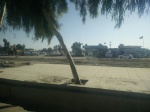It’s been three months now since I left Afghanistan. Like Turkey and the Syria response before, it was a hurried exit in preparation for a rapid turnaround – quick breath, and onto the next crisis. This time Baghdad. Or at least that was the plan.
Instead: every few years I find it’s necessary to rebuild, piece things together again from first principles. And rather unexpectedly I find myself in that space again.
…..
Afghanistan began in a blur. I arrived already under pressure, having had only a week between jobs due to the urgent nature of the work to be undertaken (Note: this is a bad idea), only to find that shortly after my arrival my organisation, along with pretty much the entire humanitarian architecture, shut down for Eid.
And so, as with much of the year that was to come, the beginning was marked by a perpetual sense of panic, for no real reason.
…..
Afghanistan occupies a very particular space in the public consciousness. Having largely dropped off the media radar, except for those rare moments when things go boom with a big enough bang to make it through to the attention of the international press, most people are understandably unsure whether things are getting better, or much worse. What they do know is that it is an unusually dangerous place.
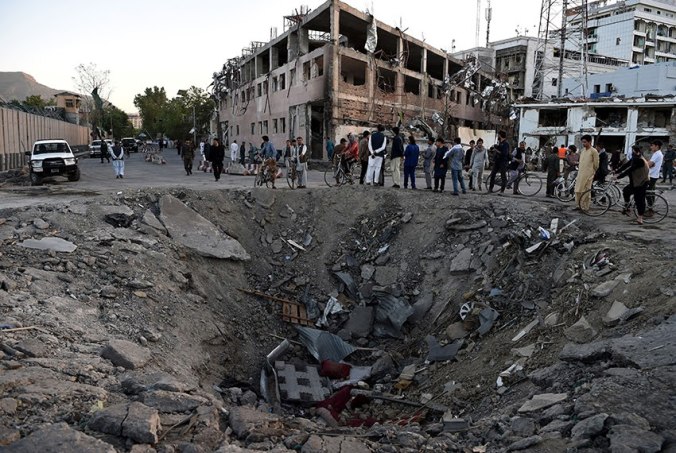
Crater from the May 2017 bombing in Kabul
And, indeed, that is a correct supposition. My security advisor, a long-time veteran of the country, summed it up: “Afghanistan is a perpetually escalating stalemate”. 16 years on from the US invasion, carried out under the auspices of bringing peace and security, and the Taliban hold or contest 40% of the country; the frequency and severity of attacks is increasing, along with an increase in the number of attacks of a sectarian nature; ISIL / Daeash’s local offshoot, the ISKP (Islamic State in Khorasan Province) have managed to establish a foothold in the east; and the vice President, unredeemed warlord Abdul Rashid Dostum, was recently thrown out of the country amidst claims of the detention and rape of a rival, prompting a moderate political crisis.
Meanwhile, early in the carnival barker shitshow that is his presidency Trump chose Nangarhar province as the dumping ground for the MOAB – Mother Of All Bombs – as part of his own rapidly-escalating sabre rattling contest with North Korea. Having subsequently realised you can’t solve all problems with aerial bombardment Trump has decided that a minor troop surge – a 4,000 person increase that still leaves western forces well over 100,000 short of the numbers present at the height of the Obama years – is the brilliant new strategy that nobody could have possibly thought of before. Or the time before that.
All of which to say: no matter how you parse it, Afghanistan isn’t having the best of times, and all indicators suggest that it’s going to continue on this negative trajectory for the foreseeable future.
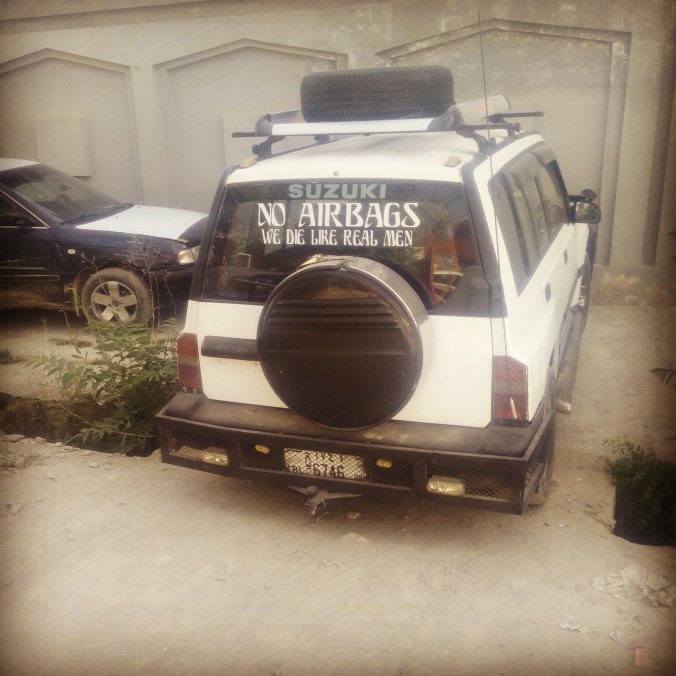
Kabul wisdom
…..
Despite this, however, Afghanistan is not an acute humanitarian crisis, not like Yemen, Syria, or South Sudan, say. Sure, there are large numbers of people affected by the conflict and harsh winter conditions, in addition to the arrival of hundreds of thousands of refugees ejected from Pakistan, but this is not a new operation, the threats are not-unpredictable, and neither are the modes of response. There is a long-standing humanitarian presence in Afghanistan with agencies and staff who have years, if not decades, of experience on the ground. Consequently, I made certain assumptions about how things would function. Or not, as often turned out to be the case.
Each humanitarian response has its own shape, its own variations of process, modality and approach, determined by leadership personalities, practical considerations such as are there roads? / is this a giant swamp? / are the people doing the war a bit behead-y?, and the broader socio-historical context in which you are operating. Once this has been established you are working within a system – an often-clunky and bureaucratic system, at that – and the best you can likely hope for is iterative change.
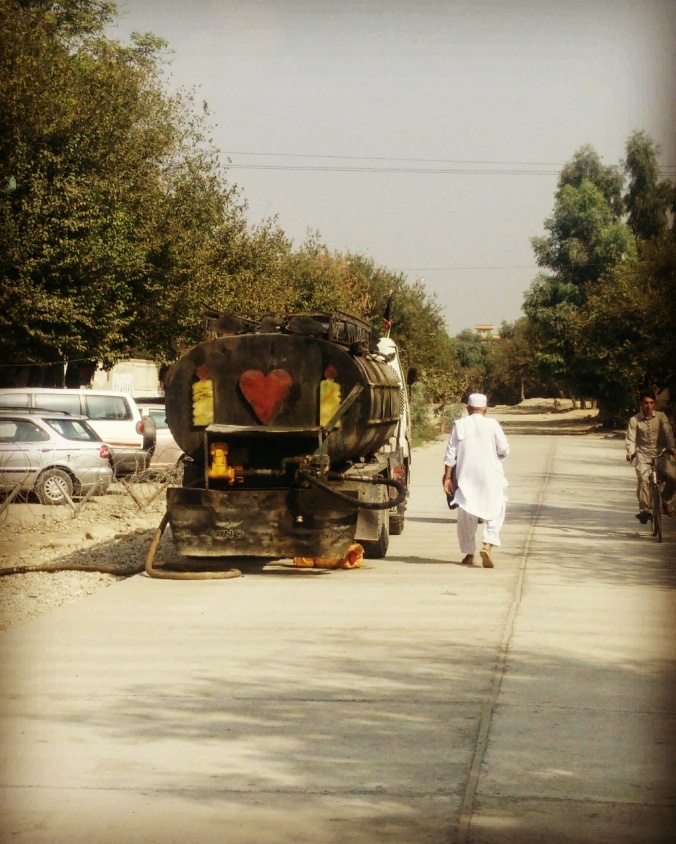
A hopeful oil tanker in Jalalabad, Nangarhar Province
For nobody, at least nobody who actually works within the industry, expects aid work to be simple. After all, the very contexts that require humanitarian assistance are defined by complexity, with competing interests, direct opposition from conflict actors, and interference from local power holders taken as read. And that’s before you bring geopolitical trends, macro-level state interference, or donor-government demands and agendas in to the picture. It is difficult, and often messy, work.
Nevertheless, in Afghanistan, little functioned like I expected. As always there were some great people who knew the context and knew how to get shit done. And I saw signs of progress over the course of the year. But for a response that should have been well-established, little was straightforward, views were entrenched, agencies were at loggerheads more often than not, and there was the frequent sense of reinventing the wheel. It was dysfunctional, inefficient and exhausting.
…..
On a more personal level, I was coming to Afghanistan on the back of one of the most unsettling and dispiriting experiences of my professional career. The agency who I worked for on the Syria response found themselves embroiled in a scandal that brought the critical life-saving programmes of which we were so justifiably proud grinding to a halt, and nearly brought the entire organisation to its knees. It wasn’t pretty.
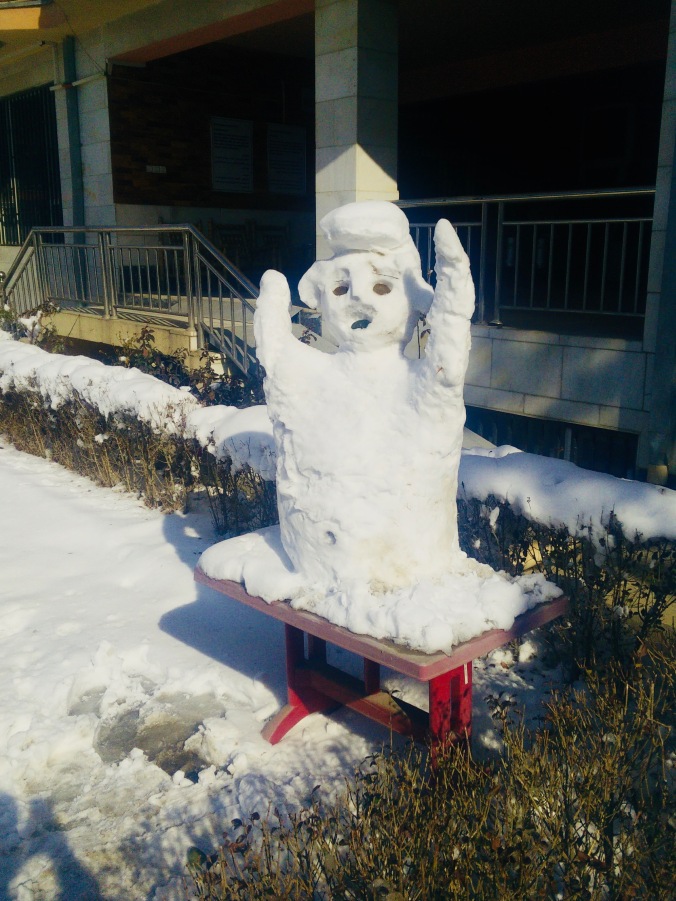
Kabul does the BEST snowmen, it’s true
Having lost faith in an organisation in which I once strongly believed I jumped at the chance to move to an agency with a strong global reputation, and I felt positive about this new job, and the opportunity for a fresh start. If nothing else, I thought I was done with internal crises. Instead, I walked from an one organisation undergoing a macro-level existential crisis to another undergoing its own localised shocks in a seemingly straight swap.
What followed will be familiar to any aid worker, but its ubiquity makes it no less exhausting to live through. Soon after I arrived in country we underwent a rapid turnover in personnel, for a typical range of reasons. Desperately understaffed we lurched through months of survival-mode panic, people burning the candle at both ends as tempers frayed and reports piled up and relationships broke down. We kept things afloat, but it was toxic and it took an inevitable toll on us all. Me, I went more than twice the R&R rotation and came home for Christmas worn out and insomniac, having spent weeks sleeping two, maybe three, hours a night.
None of this is conducive to either effective work or to positive mental health. Add in the additional stressors of life in a high-risk security environment and it’s unsurprising, in retrospect, that there were moments when burnout or breakdown felt near at hand.
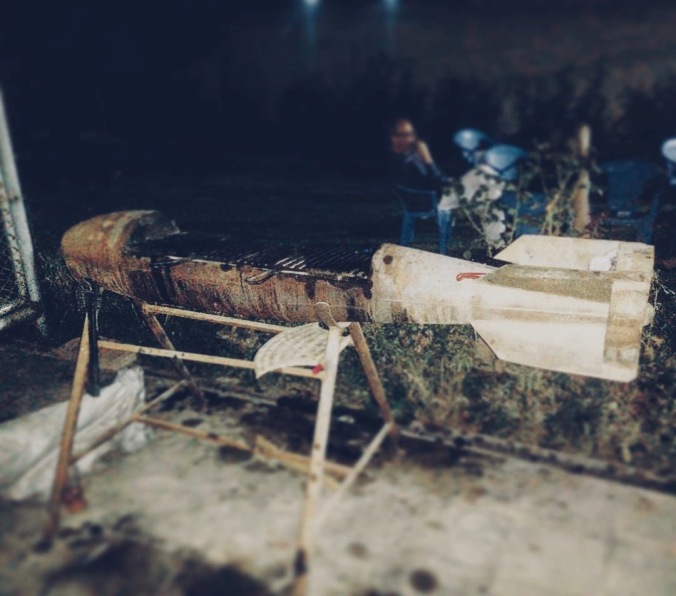
BBQ in a bomb – upcycling, Afghanistan style
…..
Shortly before my year elapsed I was offered a new job with my organisation, a position in Baghdad that was a step in the right direction in all of the key professional and personal rubrics: increased responsibility; a more direct connection between myself and programme implementation, and a decreased risk of kidnapping / going boom. After several months of careful personal preparation I signed the contract and packed my life back into its suitcase, looking forward to three or four weeks of rest back home. Overall, I felt in a much healthier place than I did upon arrival in Kabul: happier, calmer, and having learned some important lessons, personally and professionally, over the previous year.
Instead, the first Monday after my return the job fell through, due to circumstances outside of my control. And so I found myself dazed and uncertain as to what was next. I was back home, with a group of dear friends around me, and summer stretching out in front of us. On the face of things, this was too good an opportunity to turn down. And so I decided to take some time off, rather than going straight into job-seeking mode.
Slowing down enough to reflect on everything that was going on, and everything that had happened in the years since I had last lived at home, I recognised that I needed a proper break. A reset. Because as I have seen before, both from first-hand experience and in the lives of my friends and colleagues, these things and these places they take a toll. We all have our limits, beyond which we can push and push with all the willpower that we may possess, but eventually we have to stop, or we will snap. And I can see now that the past two years pushed me closer to my limits than perhaps I realised at the time.
After years of moving back and forth between home and various humanitarian crises I have got better at the ability to deal with the transitions, and having previously made a successful return to Ireland I was confident that I could benefit from a few months to rest up and reconnect with the people and things that matter to me.
The previous transition, after the end of my time in South Sudan, I unpacked my life from boxes, took a job back in Dublin, went to weekly therapy sessions, and invested in relationships with friends and family, committing to staying still until I felt strong enough to go back to ‘the field’. And it took a year and a half, but eventually I was ready to venture forth again.
This time, while tired and ready for a break, I had not undergone any acute personal trauma, and was not generally at a crisis point, so three to six months sounded more than sufficient. What I did not foresee, however, was how this liminal space – home but not properly reintegrating, a period of temporally-limited rest before going back overseas – would present its own set of challenges.
A few months in and the sense of in between – of being home but not home – started to lose its appeal. While I could not be more grateful for the time, compassion and generosity of my friends who have put me up, and put up with me, during this period of reorientation, the lack of stability and routine have not proven particularly helpful. Couch surfing and sofa hopping take on a different connotation as you approach your thirties.
And so, much to my surprise, I find myself looking forward to the remainder of my time off – a bit more travel, and then staying resolutely still; more time with friends; more writing, more self-care, more meditation and rest – but also increasingly looking forward to getting back to work. And infinitely grateful for the fact that I have work to return to that I care about and gives me a sense of purpose.
Let’s see what’s next.
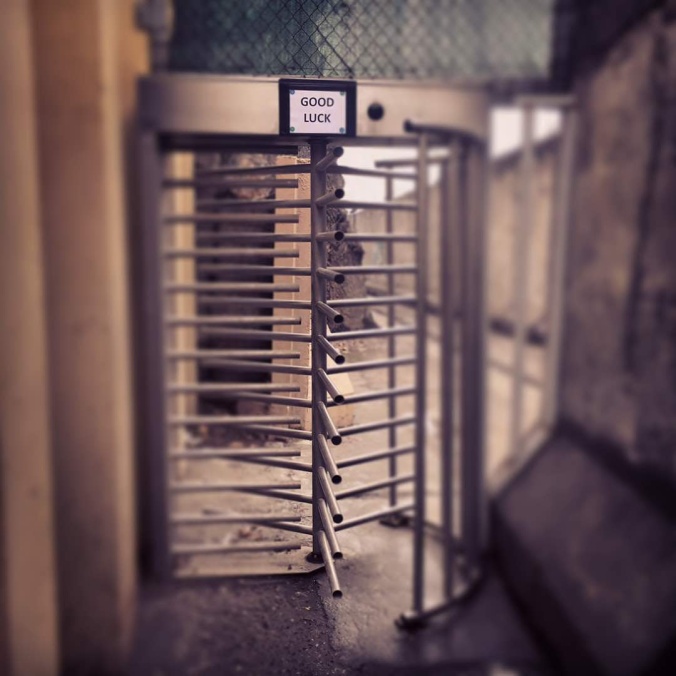
Gallows humour at the exit of the NATO base, Kabul
…..














